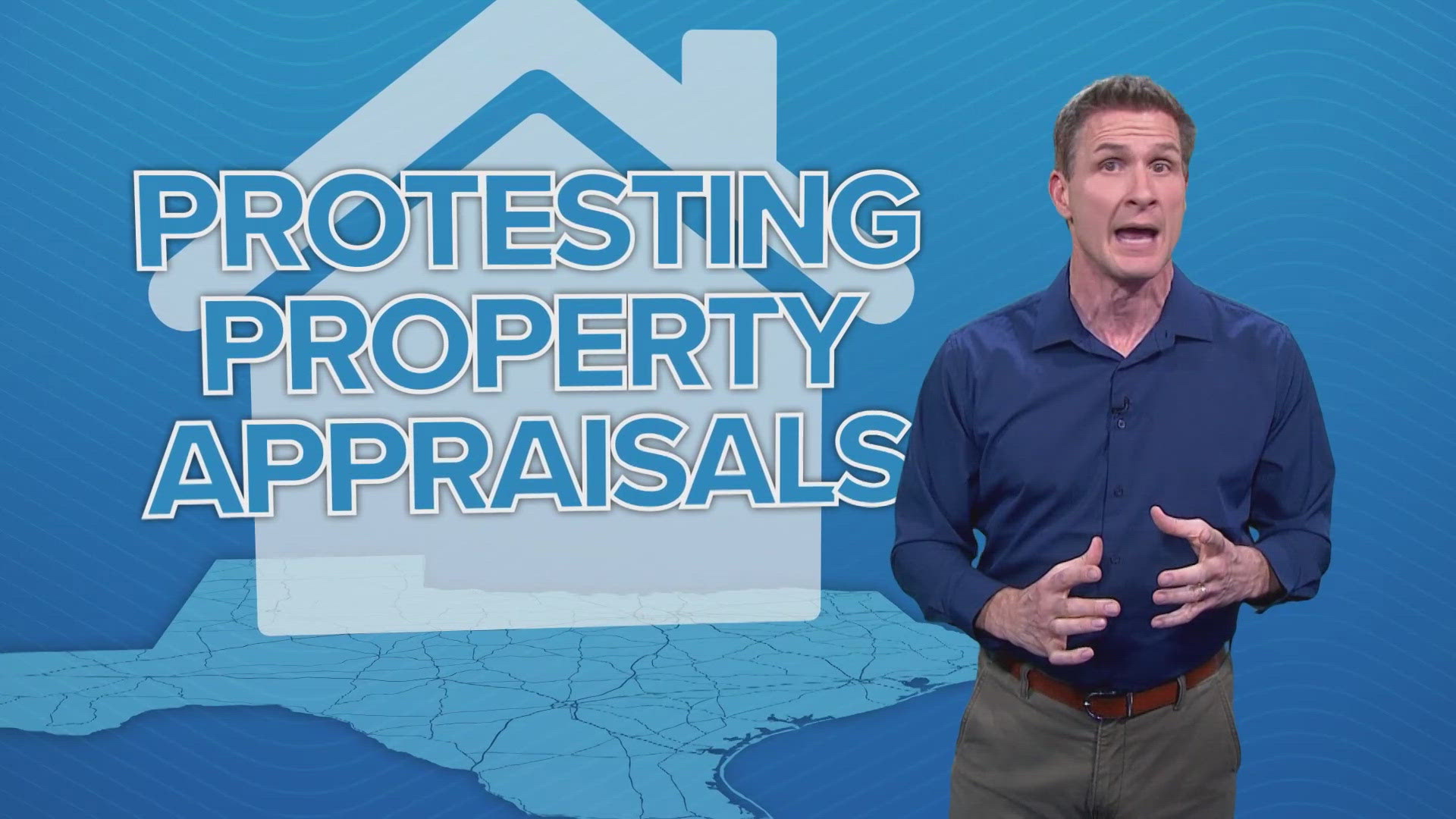DALLAS — I recently got a “Thanks!!”. And yes, it came with double exclamation points. It was from someone who heeded advice I passed along in a Right on the Money episode last year featuring the chairman of the Dallas Central Appraisal District’s Appraisal Review Board.
Those are the people you are trying to convince if you are protesting your property appraisal. The advice we got may be important to you if you are among the thousands of Texas homeowners who are protesting property appraisals and are now awaiting your hearing with the review board.
To help figure out your home’s taxable value, the appraisal district looked at the sales prices of homes like yours and near yours, generally that sold in the prior year. These are called comparable sales, or “comps”. A comp competition begins if, as part of your appraisal protest, you ask a professional like a real estate agent to produce a short list of the homes near yours and similar to yours that sold for less than the comps the appraiser relied upon.
A note from realtor and prolific appraisal protestor Chandler Crouch: To make your case, you can look for home sales for all of last year and even into March of this year.
That is confirmed by the Collin Central Appraisal District, which adds they, “always put the most weight on sales that happened closest to the valuation date of January 1st” of the current year. Sales that happened the closest to that date are helpful barometers for your value, if the property is close to yours (distance-wise, size-wise, and condition-wise).
So, let’s revisit the critical element that brought about the recent “Thanks!!”. When I talked with the chairman of the Dallas Appraisal Review Board last year, he shared that the most convincing comps are the ones that come from your same neighborhood code.
Generally that’s a short string of letters and numbers next to the word ‘Neighborhood’ when you look up your property on an appraisal district’s website. Some appraisal districts make it fairly easy to search for the group of properties that share your same code.
On the Dallas CAD website, you can find it by locating a property and then looking under “Property Location” in the upper left-hand corner of the property detail page.
Some districts use a different term. In the Collin CAD for example, they call it the Abstract/Subdivision. You find that by conducting a property search. When you find the property, most of the way down under “General Information”, you will see Abstract/Subdivision and to the right of that is a clickable link to the map that includes properties in that neighborhood code.
In the Harris CAD, if you have your neighborhood number, you can find other properties with the same number by putting that number into the field next to ‘Neighborhood” in an advanced record search.
Finding sales from inside that micro neighborhood “was crucial” according to the person who just sent me a “Thanks!!” for the information from that interview with the chairman of the Dallas ARB last year. The homeowner says they followed the advice and used comparable home sales from their specific neighborhood code, while some of the comps the appraisal district had used were from a nearby but different code. It helped them get their taxable value reduced by $44,000.
If you are preparing for a protest hearing, here are some answers to frequently asked questions and some other things to consider. Also, you might want to know how often protests are successful. Here is what we have been able to glean about that in the past. Also, Chandler Crouch, who has shepherded through appraisal protests for thousands of North Texans, shared a lot of thoughts on the process with us on our Y’all-itics Texas political podcast.

